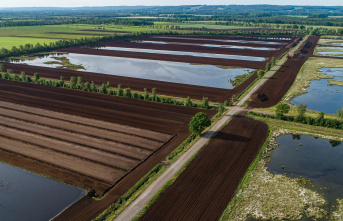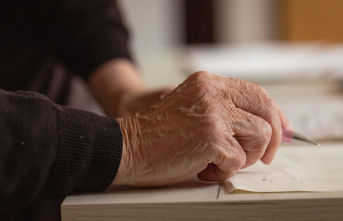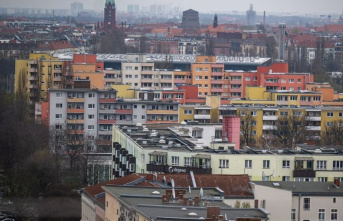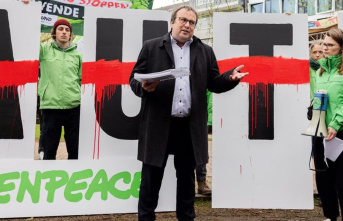The legally convicted right-wing terrorist Beate Zschäpe has to appear as a witness before the NSU investigative committee of the Bavarian state parliament. This was decided unanimously, said the committee chairman Toni Schuberl (Greens) of the German Press Agency in Munich. A specific date for which Zschäpe will be summoned as a witness has not yet been set.
The terrorist cell "National Socialist Underground" (NSU) - Zschäpe, Uwe Mundlos and Uwe Böhnhardt - had been murdering Germany for years since 2001. Their victims were nine traders of Turkish and Greek origin and a German policewoman. Mundlos and Böhnhardt also carried out two bomb attacks in Cologne, injuring dozens of people. The two killed each other in 2011 to avoid being arrested - only then was the NSU exposed.
Zschäpe, the only survivor of the trio from Jena in Thuringia, was sentenced to life imprisonment in 2018 after more than five years of trial - as an accomplice, even if there was never any proof that she herself was at one of the crime scenes. The Munich Higher Regional Court also determined the particular gravity of the guilt. This means that an early release from prison after 15 years is almost impossible. The Federal Court of Justice (BGH) rejected an appeal by Zschäpe in August 2021. Last October, it also failed with a constitutional complaint before the Federal Constitutional Court in Karlsruhe.
Uncover connections to the right-wing scene
The aim of the second NSU investigative committee in the Bavarian state parliament is, among other things, to clarify possible connections between the NSU and the Bavarian neo-Nazi scene. The deputies are now also hoping for Zschäpe. "We want to hear anyone who can give us answers to our questions," said committee chief Schuberl.
"The NSU has caused so many people endless suffering. That cannot be made up for," said Schuberl. "But Ms. Zschäpe now has the chance to at least take the nagging questions away from the relatives by providing answers. Only she can close the gaps." Schuberl emphasized: "Ms. Zschäpe has been convicted and has nothing more to fear if she speaks openly." Of course, there are no means of forcing Zschäpe to make a statement.
In the NSU trial, Zschäpe made written statements and spoke twice himself. In writing, she admitted that she knew about the bank robberies of her friends Mundlos and Böhnhardt and that she set fire to the trio's last refugee apartment in Zwickau, Saxony. But she only claims to have found out about the murders and attacks afterwards. She later said in a brief statement that she regrets her "misconduct" and that she condemns what Mundlos and Böhnhardt "did to" the victims. In her closing words, Zschäpe said: "Please don't judge me on behalf of something that I neither wanted nor did."
The Munich Higher Regional Court, on the other hand, followed the argumentation of the federal prosecutor's office: Zschäpe very well "knew everything, supported everything and helped to control and achieve things in her own way".











